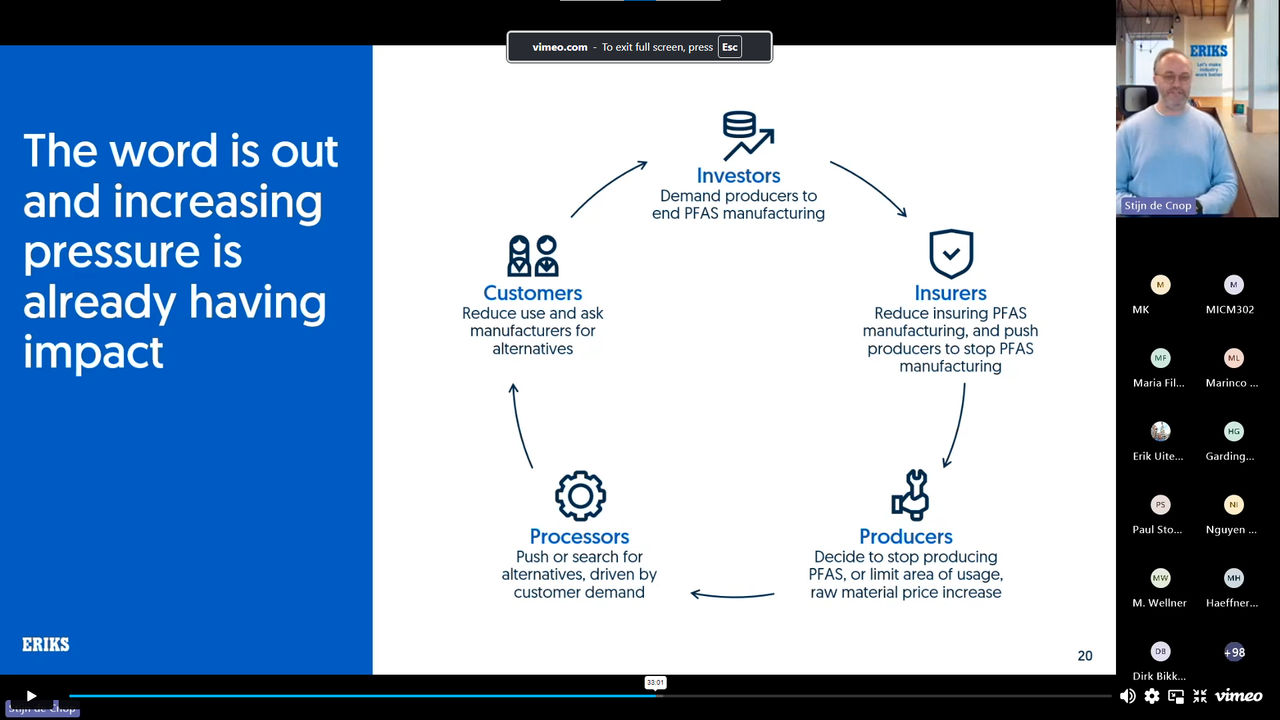Regarding FKM / Viton ‘rubber’ elastomer parts.
Understand supply restrictions are soon coming for this material.
The restrictions, surprisingly have not been adopted by the U.K. yet (uncharacteristically)
3m have already announced intention to cease manufacturing FKM / viton products.
The nasty chemical (pfas) is not within the product itself, but used in the manufacturing of it.
Will undoubtedly affect availability and prices soon.
Get stocked up!!!!
more details here:-
alternatives are being offered but there is no direct replacement. (Search Dana …. Who seem to be ready and prepared)
the impact of which is huge and far reaching in terms of re validation of systems relying on fkm / viton for sealing.
fkn / viton does not feature in oem stag seals, but has been used to improve durability on some fitments for sure.
eg heater valve , float bowl bung lip seals etc etc
more Pfas information here
https://www.victrex.com/en/pfas#:~:text=Victrex%20provides%20a%20PEEK%20polym er,surgical%20instrumentation%20to%20drug%20delive ry.
Relevancy:- ‘peek’ is the highest performance engineering plastic known…. also really expensive, really really.
Automotive avoid peek unless it’s essential, due to cost… but it is used for high temperature electrical e.g. alternator brush pack holders on high output units…. And undoubtedly similar items in E.V.s too.
Understand supply restrictions are soon coming for this material.
The restrictions, surprisingly have not been adopted by the U.K. yet (uncharacteristically)
3m have already announced intention to cease manufacturing FKM / viton products.
The nasty chemical (pfas) is not within the product itself, but used in the manufacturing of it.
Will undoubtedly affect availability and prices soon.
Get stocked up!!!!
more details here:-
alternatives are being offered but there is no direct replacement. (Search Dana …. Who seem to be ready and prepared)
the impact of which is huge and far reaching in terms of re validation of systems relying on fkm / viton for sealing.
fkn / viton does not feature in oem stag seals, but has been used to improve durability on some fitments for sure.
eg heater valve , float bowl bung lip seals etc etc
more Pfas information here
https://www.victrex.com/en/pfas#:~:text=Victrex%20provides%20a%20PEEK%20polym er,surgical%20instrumentation%20to%20drug%20delive ry.
Relevancy:- ‘peek’ is the highest performance engineering plastic known…. also really expensive, really really.
Automotive avoid peek unless it’s essential, due to cost… but it is used for high temperature electrical e.g. alternator brush pack holders on high output units…. And undoubtedly similar items in E.V.s too.

Comment